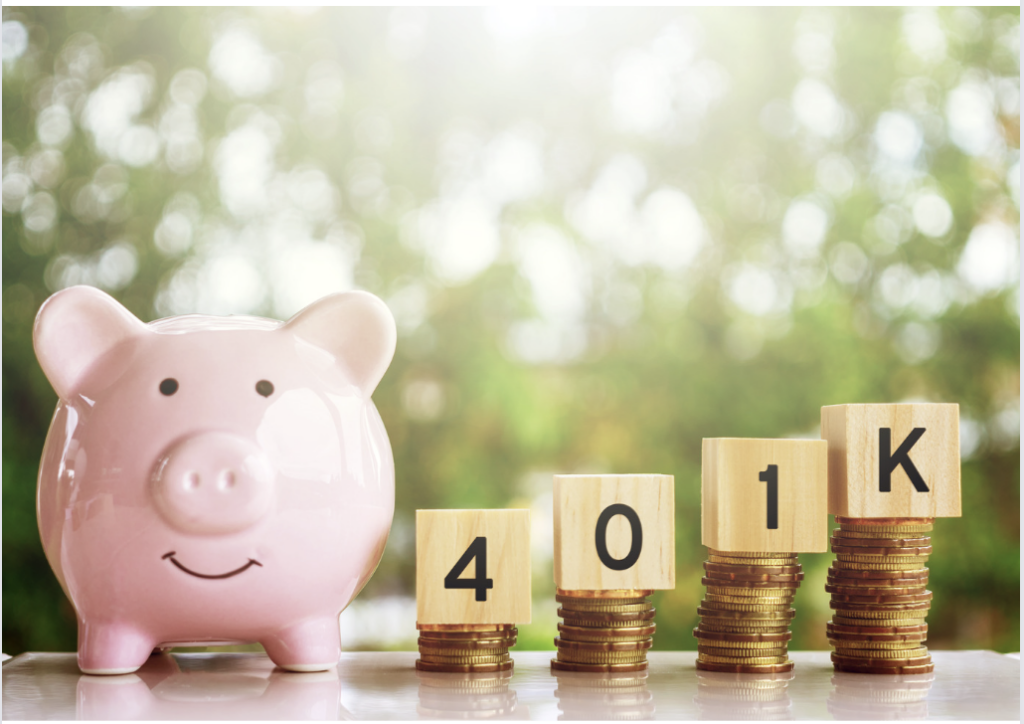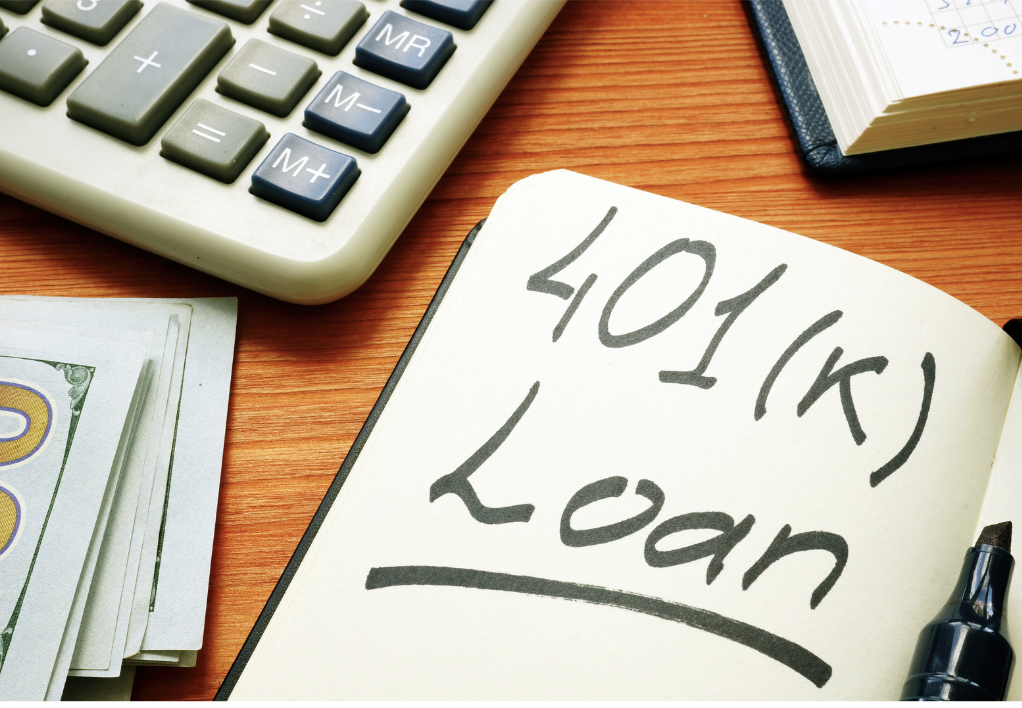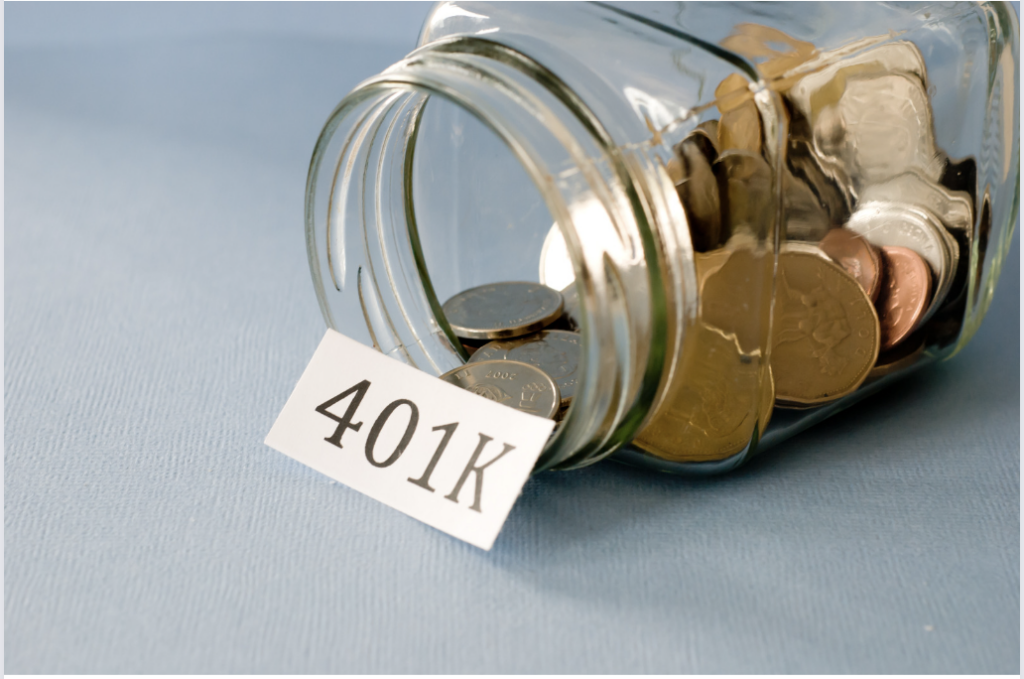“Did you know that you can borrow from yourself if you have a 401(k) plan?” Was a comment I made to a friend of mine during lunch last week. This topic comes up some many times when talking with friends, at open houses or people out about that have worked with a company for many years and more or may not have though about using your 401(k) for a downpayment to buy a home
- What a 401(k) plan is ( since I remember for years having one and not know where my money was going too)
- 401(k) Loan Details
- 401(k) Withdraw Details
- How to decide if this is the right choice for you
Take some time to review the highlights below of what you can typically expect if you plan on using your 401(k) for a downpayment by borrowing or withdrawing money from your 401(k) account.

Finding money for a down payment can be stressful for many first time buyers. Also those looking to buy and sell at the same time and looking for extra money to use for a downpayment before they sell their home. You may have explored getting a gift or loan from a family member, qualifying for assistance programs for low to mid-income buyers, or looking at mortgage plans with low down payments such as a FHA loan. Maybe this doesn’t work for you or you still need more money and have thought about using your 401(k) for a downpayment to buy a home. this is definitely a possibility so lets get into it!
I will leave you with one example from my own experience when it comes to 401(k) before we start. The equity growth of being a homeowner for 4 years outpaced the growth of the 401(k) money I had saved in my account from working at a company for close to 10 years.
What is a 401(k) and What Is Its Purpose
It’s understandable if you may be wary of using any retirement funds for anything other than retirement. However, it’s worth evaluating the long-term pros and cons of Take some time to review the highlights below of what you can typically expect if you plan on Using your 401(k) for a downpayment to buy a home.
So what is a 401(k): A 401(k) is a type of retirement savings account in the United States, named after a section of the Internal Revenue Code. It is a tax-advantaged investment vehicle that allows you as an employees to contribute a portion of their pre-tax income to the account, and these contributions can grow tax-deferred until withdrawal during retirement aka 59 1/2.

The main purposes of a 401(k) are:
- Retirement Savings: The primary purpose is to help individuals save for their retirement. You can contribute a portion of their salary to the 401(k) account, providing a way to accumulate funds over their working years.
- Tax Advantages: Contributions to a traditional 401(k) are made with pre-tax dollars, meaning that the money is deducted from your income before taxes are applied. This reduces their taxable income in the current year. Additionally, any investment gains within the 401(k) are tax-deferred until withdrawal.
- Employer Matching: Many employers offer a 401(k) matching program, where they contribute a certain percentage of the employee’s salary to the 401(k) account, up to a specified limit. This can significantly boost the overall retirement savings. For example, your employer may match when you put 6% into your 401k giving you 12% of you paycheck into your 401k account.
- Investment Options: 401(k) plans typically offer a range of investment options, such as mutual funds, stocks, and bonds. This allows individuals to customize their investment portfolio based on their risk tolerance and financial goals.
- Portability: 401(k) accounts are portable, meaning that if you changes jobs, they can usually roll over their 401(k) balance into an Individual Retirement Account (IRA) or their new employer’s 401(k) plan, maintaining the tax advantages and continuity of savings.
It’s important to note that there are different types of 401(k) plans, including traditional 401(k)s and Roth 401(k)s, each with its own tax treatment. Additionally, there are rules and limitations on contributions and withdrawals to ensure that the funds are primarily used for retirement purposes which we will talk about later.
Borrowing Against Your 401(k) Means Borrowing From Yourself

Using your 401(k) for a downpayment to buy a home by getting 401(k) loan is one way to get additional money toward a down payment. It’s a lump sum of money that is already yours. Not the bank’s!
First off, you’ll need to double check to see if your particular 401(k) plan offers a loan option. Many 401(k) plans offer loans unlike IRAs, which only offer early withdrawals. Here is some key information on typical 401(k) loans:
- Up to 50% of your vested account balance can be borrowed, with a maximum of $50,000. You usually have to be currently employed by the sponsoring employer of your plan. You may have to pay fees for your 401(k) loan if you decide on using your 401k for a downpayment to buy a home. Some employers tack on origination fees, annual fees, or default fees if you fail to repay the loan.
- No credit check or approval by a lender required. However, your mortgage lender will consider this loan when it evaluates you for a mortgage. Smaller loan amounts won’t affect your mortgage qualification as much. Check with your mortgage lender if you are thinking of Using your 401k for a downpayment to buy a home. If you don’t have a lender I have a few I can recommend.
- Lower interest rate than standard loans. You’ll be paying yourself that interest (along with the principal) back into your account, not the bank. However, interest payments aren’t tax deductible, so that’s one cost of borrowing from your account. And, you won’t be earning any interest on the money that’s your using to buy a home that is not in your account but that money will most likely be gaining equity. The interest rate on a 401(k) loan is lower compared to most retail lending options. It is usually the prime rate plus 1% to 2%. As of January 2023, the prime rate is 7-7.5%, which makes a 401(k) loan about 8.50% to 9.50% APR, depending on your plan’s administrator. This is great compared to personal or credit card loans that are on average APR of 21% for 5-year loans and 15% for 3 year loans. You will have to consider this 401(k) repayment amount outside of your monthly home mortgage payment.
- Full repayment required within 5 years. Yes, you’ll need to repay back this loan to yourself if your using your 401(k) as a downpayment. Can be automatically deducted from your paycheck monthly into your 401(k) account. An options here may be to refinance before the full amount is due. That way you only have one loan at one rate and can pay off what you own on the 401(k). If you have any questions about this please reach out and we can go over some scenarios.
- Fast funding: You may be able to get you money as early as your next paycheck.
- 60-to-90- day time period to pay the loan back in full if you leave your job before repayment. Or it will be considered distribution (money you pulled out) and will incur a 10% penalty. This mean you will also have it taxed as income. So don’t plan on changing jobs or getting fired during the repayment period if your using your 401(k) for a downpayment to buy a home!
Withdrawing Funds From Your 401(k) Account

You may also have the option of withdrawing the funds rather than setting up a loan if you plan on Using your 401k for a downpayment to buy a home. However, there are usually stringent restrictions in order for your employer to allow in-service withdrawals.
Withdrawing money from your 401(k) to buy a home can have both advantages and disadvantages. Here are some pros and cons to consider:
Pros:
- Down Payment: Using your 401(k) funds can provide a source of funds for a down payment on a home.
- Avoiding Debt: By using your own savings, you avoid taking on additional debt from loans or credit.
- No Credit Check: Unlike a mortgage, accessing your 401(k) doesn’t require a credit check.
- Fast funding: As with the loan you may be able to get you money as early as your next paycheck.
Cons:
- Early Withdrawal Penalties: If your plan allows an early withdrawal funds, you’ll owe income tax on that amount and you could be subject to a 10% Federal tax penalty if you’re younger than 59 1/2.
- Reduced Retirement Savings: Withdrawing from your 401(k) means reducing your retirement savings, potentially impacting your long-term financial security. Once again the goal is to use this money to gain equity in a home. Not to go buy a new Tesla ( tempting I know).
- Tax Implications: The amount withdrawn is typically subject to income tax, and it could push you into a higher tax bracket for the year.
- Lost Investment Growth: The money taken out won’t benefit from potential investment growth over the years until retirement.
- Employer Match Impact: If your employer matches your contributions, you may lose out on potential matching funds by withdrawing early.
- Limited Amount: The amount you can withdraw may be limited, and you might not have enough to cover the full cost of the home.
Before making such a decision, it’s crucial to consult with a financial advisor to understand the specific implications for your situation. They can help you assess the impact on your retirement goals and explore alternative financing options for purchasing a home.
For example, you won’t be approved for a “hardship exemption” since you’re using your 401k for a down payment on a home.
As you can see, borrowing from your 401k plan can be a more viable option for many first-time buyers or investors than a complete withdrawal.
Check with your tax advisor and mortgage lender to learn any specific ramifications you may face with a 401k loan. You can see if a small loan to bump up your down payment funds is worth it or not.
And, as always, I recommend that you consult with your own tax or financial advisor before you pursue anything.
I hope this information has helped you think about whether borrowing from your 401k to fund your homeownership dreams is something you want to do or not. If you’d like to talk more about your financing options, I’d be happy to talk more anytime. James.Daniel@exprealty.com when you are ready to chat. I’m here for you!
James Daniel REALTOR®
Los Angeles,CA
Hi, there!
Whether you don't know where to start or have tried to sell or rent your home in the past and it just didn't work out. I'm here to help!
Let's Chat!
Contact
james.daniel@exprealty.com
Buy
My Listings
Sell
All Blogs
schedule your free consultation